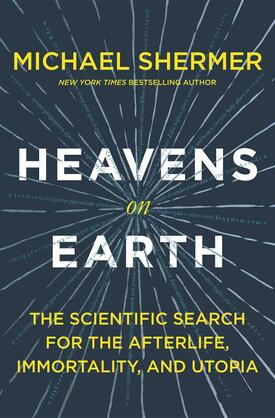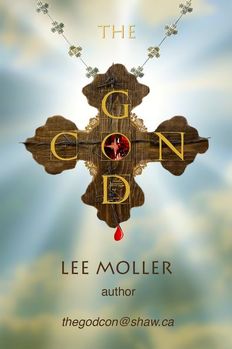 faulty If you are a student of WWII like me, you might enjoy this book. A very quick read. Lots of pictures and maps. Some very interesting stories about the US's submarine warfare efforts in the Pacific. There are nice stories about sub mascots and ice cream machines, and there are not so nice stories of pointless and pointed deaths. I have seen every notable submarine movie ever made. Some of them are ridden with false clichés, and others are very accurate. One of the best is Run Silent, Run Deep. It reflected a mélange of submarine realities. Some notables from the book: In Run Silent, Run Deep, Clark Gable plays an obsessed skipper determined to kill a certain destroyer with a "down the throat shot" (meaning "bow on"). One submarine actually did pull this off. When a sub "buttons up" for a dive, high pressure air is released into the sub. If the sub holds the air pressure, it is generally good to go on the dive. The "Christmas tree" (a bank of lights -- green on US subs, white on German -- indicating the sub's water-tightness) would not show a green dive light if it did not. Some subs actually had mascots (puppies etc) that they kept hidden from the skipper... In one case, until he literally stepped in it. One submarine actually killed itself with a faulty torpedo that boomeranged. There actually was a guy who has his appendix removed by a pharmacists mate while at sea. Subs never "crash drive". In wartime, all dives are combat dives and are done as fast as possible... every time. Perhaps the first four torpedoes fired by a US sub in the war (fired by the Seawolf) all failed to detonate. This was the start of the Mark XIV (Roman numerals… Jeez!) torpedo issue. Operation Pacific (a John Wayne movie) deals with the subject matter but gets all the details wrong. The Mark XIV was designed with a magnetic detonator. It was meant to pass under the keel of a ship and then explode, breaking the ship's back (this is similar to the way the famous dam-buster bombs worked). Unfortunately, the Mark XIV torpedoes had issues with maintaining the proper running depth. They often ran 11 feet too deep, failing to explode. This issue lasted for two years! How would you like to be sent into a shoot out knowing that a high percentage of your bullets are blanks. It took a determined naval officer to get the powers that be to even admit there was a problem. Notable boats discussed: Seawolf, Tang, Wahoo, and Trigger. The book is full of photos. It is a very quick read. World War II shaped the modern world. Everyone should respect the men who fought and won this largest and most important of all wars.
0 Comments
 Michael Shermer is the editor of The Skeptic, one of the two major skeptical journals. He is a psychologist and has been a professional skeptic for about as long as I have. I admire his work. I read this book largely because it covers a lot of the same territory as mine. I wanted to make sure he wasn't going to make me look stupid. He did not. Dying is our major fear, and religions exploit that. I doubt Mr Shermer would disagree. In the prolouge, he discusses an ISIS publication on death called "Why We Hate You, Why We Fight You". There are six statements in it, all starting with "We hate you (because)". The reasons are: you are disbelievers; you are too secular and liberal; some of you are atheists; your crimes against Islam; your crimes against Muslims; and invading our lands. The last one is kinda reasonable. In his initial discussion of death, he points out many of the same problems that I did. For example, it not possible to imagine your own death, except as a spectator, which makes no sense at all. What follows in the book is largely a discussion of death in all its forms and impacts (e.g.: capital punishment; dreams; how animals react, etc). At one point, Shermer suggests that ideas about the afterlife and death postdate writing. This seems to ignore oral traditions and I reject it. People have been making stuff up forever… with or without writing. Writing just made it better. I wrote about the democritization of the afterlife as a part of the evolution of religion. I did not use that phrase, but I like it and have adopted it. Democritization of eternal rewards was the start of the con. The book discusses the various views of the afterlife...which is a lot like discussing the properties of the integers between one and two. Fun fact: the word "paradise" comes from "pairidaeza", meaning "walled garden". This is to be expected from peoples who grew up in desert-like conditions. He discussed "forever", which is a long time to be "blissfully bored". Woody Allen said "Eternity is a long time, especially toward the end." Shermer discusses the views of modern nut-bars like Deepak Chopra, whose ramblings swing from the bleeding obvious to the incomprehensible and back inside a single sentence. He spews "pseudo-profound bullshit", which is something a computer can be programmed to do better than he can(it has been done). Deepak is a huckster (my observation) who loves to kill arguments using quantum mechanics… which he does not understand (and, in fairness, neither does anybody else). As a long time skeptic, I skimmed a chapter or two on topics with which I am very familiar, such as OBEs and NDEs (No, not the Order of the British Empire… OBE == Out of Body Experience; NDE == Near Death Experience). At least one of the best OBE stories happened in Seattle and involved a tennis show. Barry Beyerstein did a presentation to the BCS on the topic, debunking it thoroughly. Another alumnus of the BC Skeptics was cited in the book: Leonard Angel on reincarnation. Move toward the light… or away… it makes no difference to a dying brain. Ray Hyman and other notable skeptics were mentioned when it came to those walking talking assholes who tell you they can talk to your dead relatives for a fee. In discussing souls, Shermer goes into another domain with which I am familiar: science fiction (and philosophy). He mentions ideas like: If the Star Trek transporter duplicated you twice (as TNG did to Riker in one episode), which one gets the soul? Who is the real you? Science fiction has beat this horse to death over the years. Our ancestors thought of this in a thought experiment called "The Ship of Theseus". The idea, which I alluded to in my book, is this: What if you have a ship in a barn. Over the years, timbers rot and are replaced. After enough time, nothing of the original remains. Is it still Theseus' ship? Like the tree falling in the forest, it depends on what you mean. Is the ship the wood or the pattern? The book also reviews the latest attempts to literally live forever (temporal immortality), or for at least a long time. Fear not… death will be with us for a long time. It is, in fact, and ironically, natures way of keeping the species alive. I am not a big fan of Ray Kurzwell's "singularity". As Shermer puts it: Futurists are always saying the next big thing is right around the corner… they never say it is coming in 600 years. I am also reminded of the adage: Relieve the camel of its hump if you will, but you may be relieving it from being a camel. One final word: Oprah (yes, that Oprah) asked an athlete if she felt a sprit or higher power? She replied "I am an atheist". She went on to explain that she found awe in love and nature and creation in general. Oprah replied "Oh, I do not call you an atheist then." So let me say this to Oprah, who would probably argue that everyone should be able to dictate their own pronoun, "Screw You… you bigot". Shermer is a good writer. If you have never spent much time thinking about these ideas, I recommend the book. I found some good insights and a little history that I did not know. |
AuthorLee Moller is a life-long skeptic and atheist and the author of The God Con. Archives
May 2024
Categories
All
|

 RSS Feed
RSS Feed